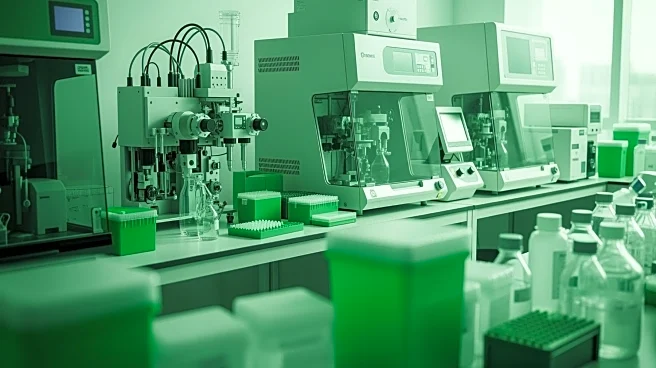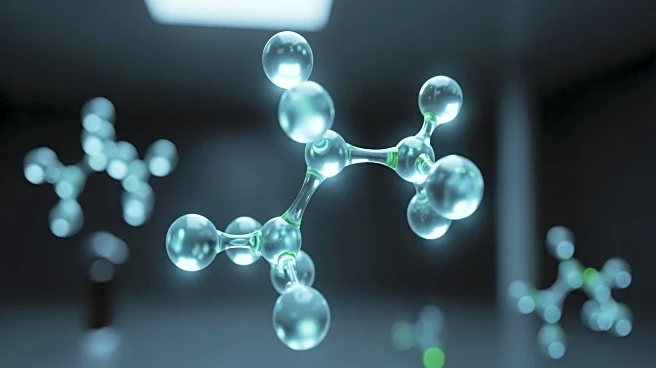What's Happening?
The biopharmaceutical industry is increasingly adopting sustainable practices, focusing on reducing plastic waste and environmental impact. Joel Eichmann, co-founder of Green Elephant Biotech, emphasizes
the importance of sustainable manufacturing, which aligns with regulatory frameworks like the European Green Deal. Sustainable production methods, such as using bio-based, recyclable materials, can lower emissions and improve resource efficiency. Eichmann highlights the economic benefits of sustainable practices, which can lead to cost savings and more resilient operations. The industry is moving towards decoupling single-use systems from fossil-based plastics, ensuring sterility and batch-to-batch consistency without compromising sustainability goals.
Why It's Important?
The shift towards sustainable single-use plastics in biopharmaceutical production is crucial for reducing the industry's environmental footprint. As the healthcare sector contributes significantly to global greenhouse gas emissions, adopting green methods can mitigate climate-related health challenges. Sustainable manufacturing not only addresses environmental concerns but also offers economic advantages, such as reduced energy and waste costs. This transition supports compliance with ESG and carbon reporting requirements, protecting companies from rising energy prices and tightening regulations. By prioritizing sustainability, the biopharmaceutical industry can enhance its reputation and contribute to global efforts to combat climate change.









